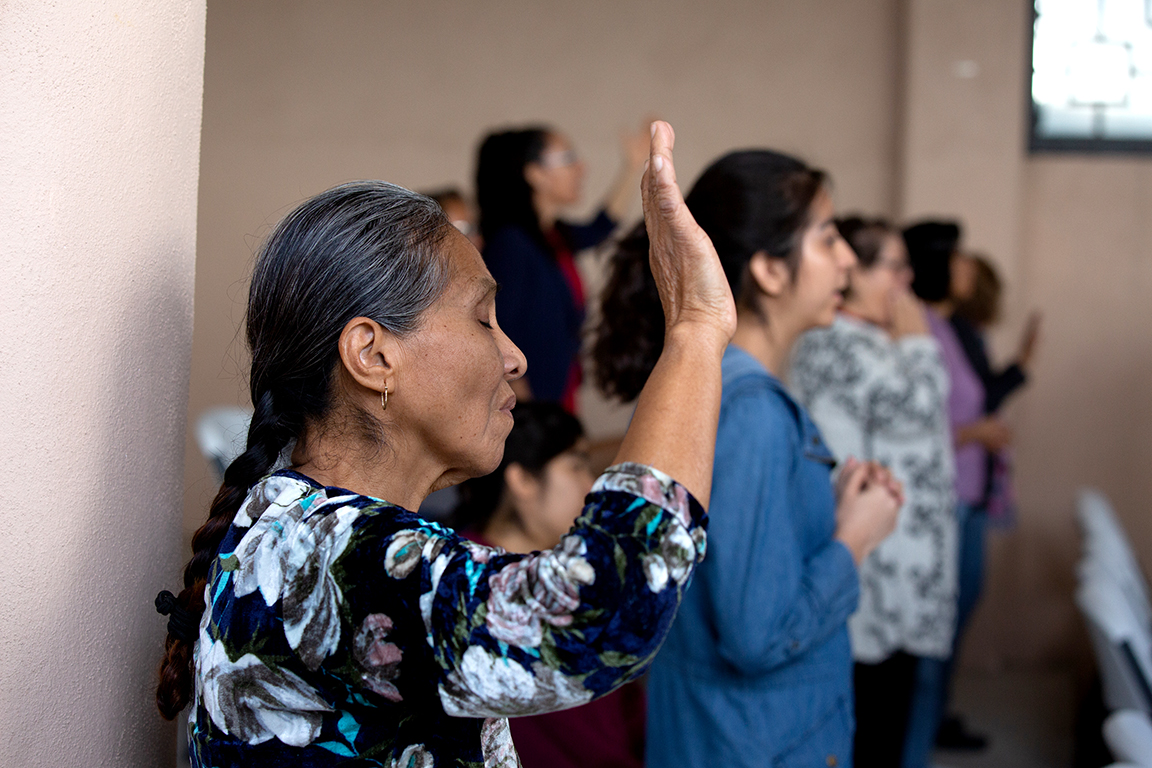
Missions Resources
Two Traits You Need on a Short-Term Mission Trip
November 12, 2015
by admin

Whether it’s your first short-term mission trip or your 10th, making a packing list is probably on your mind. In fact, your team leader may even hand you a list with specific details about the weather, appropriate dress, evangelistic materials to disperse or even the much-appreciated advice to throw in some granola bars, just in case. None of what you pack in your duffle, however, is going to make or break your trip. You are not a tourist but an advocate for God and His love.
The most important part of your preparation will be all about the heart. This leads us to ask the question: What are the most important traits you need on a short-term mission trip?
One could endlessly name characteristics to describe the ideal short-term missionary: passion, selflessness, good health, availability, preparedness, enthusiasm, and teachability are a handful that come to mind. But as a missionary kid who has been on the hosting side as well as the sending side, I have found two of the most crucial qualities you need on a short-term mission trip.
Flexibility
A team usually prepares for many months, deciding how they will go and what they will do. They develop a strategy and purchase items needed in their place of ministry.
Changes arise, however, and flexibility is crucial. The ability to change will make or break the trip.
It may be because of a lack of communication or a lack of preparation. It may also be simply because of a change of plans that is out of your control.
In the New Testament, Paul set the bar high in mission work, though he often had to abandon plans of his own. A great example is Acts 16:6-10, when Paul set out for Bithynia: He and Silas had a strategy for this great city, but the Holy Spirit would not let them go. Instead, the Lord revealed Himself through a vision calling Paul and his team to Macedonia. Verse 10 tells us Paul “got ready at once to leave,” showing no hesitation when the Lord communicated a new direction.
A change in plans is not where a trip turns into disappointment. This is where you learn commitment over drawbacks. This is where you learn that doing ministry with people is more effective than ministry to people. This is where you can reevaluate the reasons for and value of going on a short-term mission trip in the first place.
Once, overseas, a team came to serve with my family in an area where three tribal groups had united to form a 43-family community. At first, the team was denied access and had to withdraw. Within a short time, however, a fire broke out among these houses and the team was welcomed in for help with food and other necessities. The people immediately came together and decided they wanted to be Christians too. The team wisely promised to return and teach the people about what it means to be a Christian. After six weeks of ministry, the team was able to baptize 99 people who had made a true decision to follow our Lord. The team demonstrated flexibility and the need for change by being able to provide other needs and even come back at a later time.
Humility
Along with flexibility, is the need for humility. A short-termer needs to be grounded in the solid truth that our God is made strong in our weaknesses.
We can confidently go on mission trips knowing our strength is in Christ, as true humility creates a sincere recognition of our dependence on our Father.
Paul could have easily fallen victim to self-praise for his work, but God kept him humble and aware of his own thorn in the flesh (2 Corinthians 12). While we do not know for certain what this thorn was, we are told that it was an instrument of Satan by way of physical ailments and persecution. Paul begged the Lord to take it away on different occasions. The fact that God did not and that it remained as a humbling prompt for Paul to continuously seek the Lord is what qualified him. Likewise, when we are able to put aside what is distracting and serve the Lord first, it’s what qualifies us.
Construction teams would often come to my family’s area of ministry and would often arrive with expectations that they would be able to escape the heat, sleep in comfortable beds at night in hotels or that a Coke would be readily accessible. Instead, they found themselves in an area with no hotels, sleeping side by side on concrete, no air conditioning, eating what they were served and a nearby river to wash their clothes. Comfort was their “thorn,” and yet, they still got up each day, worked dawn to dusk, and joyfully did so knowing it was for the Lord.
As followers of Christ, even in the thousands of following generations after Paul, we learn God’s grace is enough to subdue these “thorns,” and His power is made perfect in our weaknesses. In many scriptural contexts, (Matthew 18:4 and 23:12, 2 Corinthians 11:7, 1 Peter 5:6), the word “humble” is used as a verb, thereby implying action from us. We remain teachable with spirits of effectiveness when we humble ourselves and make a choice of weakness based upon the Lord’s strength.
Hudson Taylor, one of the most renowned missionaries to China once said, “God was looking for a man weak enough to use, and He found me.”
So, let us boast of our weaknesses so that He is made strong and fully glorified for the great works, once in a lifetime opportunities and seeds planted on these short-term trips. Let us be flexible so that our faith is tested, then deepened. Let us go with the right call and the right heart to minister and to be ministered to.

